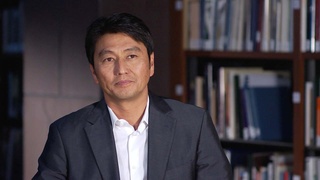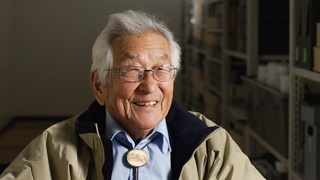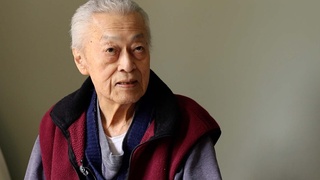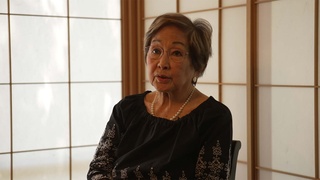Interviews
School life in Japan (Japanese)
(Japanese) Those times in elementary school, around First or Second grade, well, of course I’m behind [in the curriculum] compared to the other kids, so yes, I was ridiculed to a certain degree. They’d say, “Hey, America(n)!” and such to make fun of me. They wouldn’t let me be a part of their group… So yeah, there were things like that. But in Third grade, there happened to be this Sumo tournament at school, and for some reason I ended up being the last man standing and actually won the title. After that, my stock immediately rose (laughs). So then they let me in to their groups, and we’d play baseball together, volleyball together, and more friends were made in more groups… I had the most fun after that. Yes. I think it was around Third grade.
Date: June 17, 2008
Location: California, US
Interviewer: Yoko Nishimura
Contributed by: Watase Media Arts Center, Japanese American National Museum
Explore More Videos

Walter O’Malley’s philosophy
Former Director of Asian Operations for Los Angeles Dodgers

Getting a PhD under the G.I. Bill
(1919 - 2015) Nisei who served in World War II with the 442nd Regimental Combat Team

Requested assignment in Europe to avoid combat in the Korean War
(b. 1935) Sansei businessman.

Great grandfather Asato was a sumo wrestler
Okinawan American whose parents are from Peru.

Family’s Japanese roots and values
Sansei judge for the Superior Court of Los Angeles County in California

Facing housing discrimination in Rhode Island
(1934–2018) Japanese American designer, educator, and pioneer of media technologies

Adjustment to American life
(b. 1938) Japanese American. Hiroshima atomic bomb survivor


Adoption Story
(b. 1939) a businesswoman whose family volunterily moved to Salt Lake City in Utah during the war.

Teacher who helped with lisp
(b.1926) Democratic politician and three-term Governor of Hawai'i

Politics in ethnic studies
(1926 - 2012) Scholar and professor of anthropology. Leader in the establishment of ethnic studies as an academic discipline

Training for football by carrying 100-lb bags of grass over mountains
(b.1925) Nisei of Okinawan descent. Had a 38-year career in Japan as a baseball player, coach, scout, and manager.

Teaching at the military language school during World War II
(b. 1924) Political scientist, educator, and administrator from Hawai`i

Lesson learned from community college faculty
(b. 1924) Political scientist, educator, and administrator from Hawai`i

Japanese school
(b.1924) Japanese Canadian Nisei. Interpreter for British Army in Japan after WWII. Active in Japanese Canadian community
